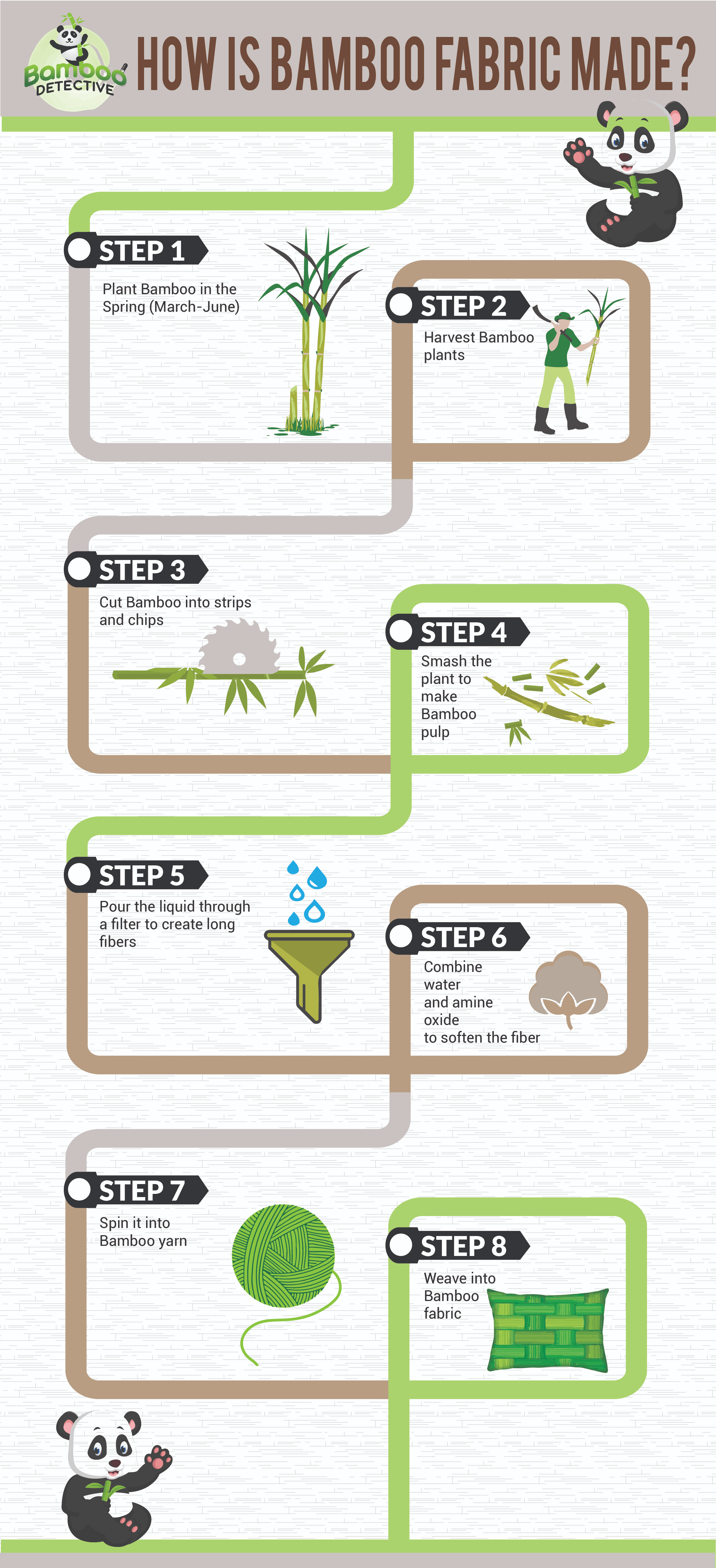Bamboo can be made into fabric called rayon using the viscose process. The fabric can be called viscose or rayon and can be made from any material containing cellulose, such as bark from trees or waste paper. There are several newer technologies related to viscose production, which produce fabrics called Lyocell, Tencel and Modal.
Viscose production uses a lots of chemicals, including the highly toxic carbon sulphide. The original viscose process produces large amounts of contaminated wastewater. Newer technologies use less water and have improved the quality of the wastewater.
Bamboo is sometimes considered a sustainable crop as it grows quickly and easily. China produces most of the world’s bamboo. Very little is known about the sustainability of bamboo-farming in that country, but as China has few agricultural or pollution standards that farmers must adhere to, it is likely that some environmental damage is happening due to bamboo farming and viscose production.



